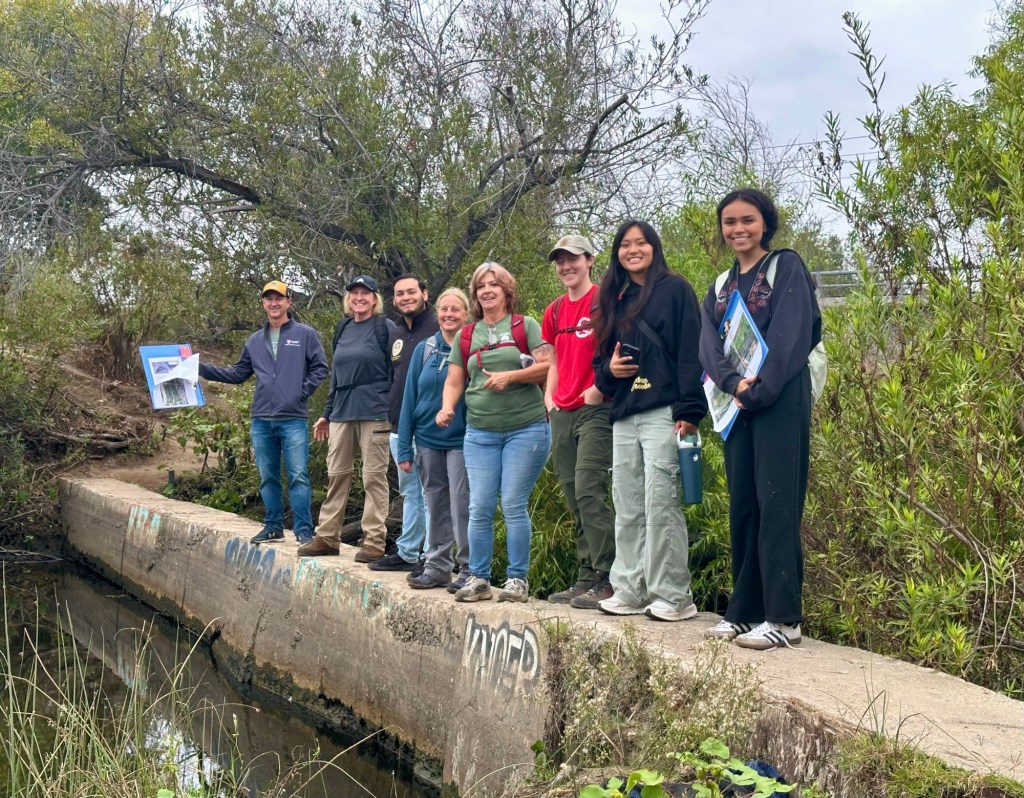It’s 4 a.m. on a recent Sunday at the San Diego River, and volunteers from various organizations are gathering to conduct an annual census of people experiencing homelessness. The count is part of the San Diego River Park Foundation’s ongoing efforts to better understand the needs and challenges along the river. They work closely with my colleagues on the outreach team at PATH, and that morning, Assemblymember Chris Ward and college student volunteers joined the effort.
At first glance, it might not be obvious why an environmental organization is on the front lines of the homelessness crisis. But the reality is that when people use the river as a home and build encampments for survival, the environmental impact and the unsafe conditions that can result cannot be ignored.
The riverbed has long been a refuge for people experiencing homelessness. Many who relocate there have been displaced from other neighborhoods and seek stability after being shuffled around. Data collection events like this census have demonstrated the need for a specialized team dedicated to outreach along the river. Thanks to state funding from the Encampment Resolution Fund that is administered through the city of San Diego, PATH teams have been deployed to provide person-centered, trauma-informed care to those in need.
Having the Assembly member there was especially meaningful and personal. During his time on the San Diego City Council, he supported a PATH pilot program that reshaped how outreach is conducted. I was working as a community representative in his office at the time and was proud to be a part of that effort. Previously, outreach teams rotated through different areas each day, often meeting new people without the opportunity to build deep relationships. In 2018, Ward’s office provided some of the seed funding for the Mid-City Homeless Outreach program, a neighborhood-based case management model spearheaded by PATH. Instead of constantly moving, outreach workers were assigned to a specific community, allowing them to get to know people, build trust and address unique needs. The program’s success led to multi-year, citywide outreach contracts with PATH, which have since expanded across San Diego County.
On the morning of the count, volunteers encountered a small group of deaf individuals that had already built rapport with the River Park Foundation team. The group included a couple who were ready to enroll in services. Kat Moore, a member of PATH’s team, approached them and used her phone to communicate, following up on previous conversations they had with her colleague, Kendall Burdett, about providing support. Before leaving, she supplied them with a San Diego River Park Foundation-provided care kit that included socks, water, granola bars, trash bags and hygiene supplies. Most importantly, she left them with a pathway to stability and hope.
The following Monday, Kat enrolled them in case management and secured them a spot at the city of San Diego’s Safe Sleeping site. She arranged for an interpreter to be present at their intake. That is what outreach is all about — meeting people where they are, building trust and offering solutions tailored to their needs. Kat is part of a dedicated team that provides this level of tailored support to people experiencing homelessness in all the communities that PATH serves. Her level of compassion and commitment is what we look for when building our diverse outreach teams.
From June 2024 to July 2025, PATH’s city of San Diego outreach teams enrolled 1,283 unhoused people in services. The ultimate goal is to secure housing, but there are many important steps to navigate along the way. With support from our teams, 968 of those individuals achieved temporary exits, meaning they moved into a shelter, substance use treatment program, long-term care facility, or reconnected with friends or family. More than 300 people were connected to permanent housing, ending their homelessness.
While results and data are crucial to measuring impact and the efficacy of these programs, there is one thing they cannot capture: human connection. For people with few resources or social connections, a consistent relationship with a case manager, someone who checks in, helps you work toward your goals and genuinely cares, can be a lifeline. Along the San Diego River and across San Diego County, outreach offers more than services. It offers connection, care and a path to home.
Renner is the communications director for PATH, a statewide homeless services provider, and a board member of San Diego Pride. He lives in University Heights.

